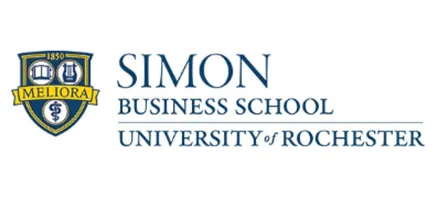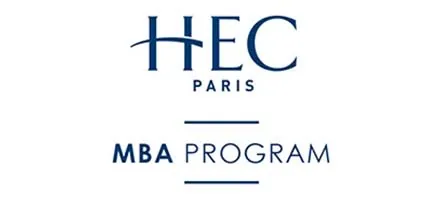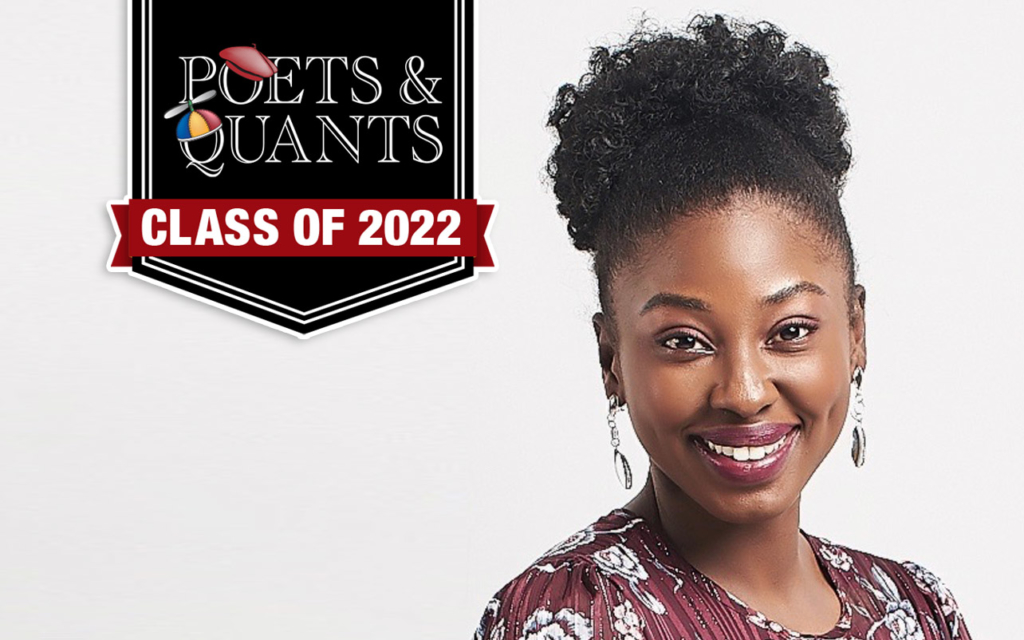Kanyinsola Aibana
University of California Berkeley, Haas School of Business
“Food enthusiast passionate about contributing to a more equitable and sustainable food system.”
Hometown: Brooklyn, New York and Nigeria
Fun Fact About Yourself: I climbed an active volcano, Villarrica, in Chile.
Undergraduate School and Major: Harvard University, Psychology
Most Recent Employer and Job Title: ideas42, Senior Associate
Berkeley Haas is founded on four Defining Leadership Principles: Question the Status Quo, Confidence Without Attitude, Students Always, and Beyond Yourself. Which pillar resonates most with you and why? Beyond Yourself resonates most with me for two reasons. First, I have been engaging in active public advocacy for many years to ensure that my autistic younger brother gets the institutional services he needs. Second, my work at a behavioral design lab and nonprofit consulting firm has always focused on helping others and generating social impact. It’s deeply motivating to have the ability to serve your community and beyond.
Aside from the four pillars and your classmates, what was the key part of the school’s MBA programming that led you to choose Haas and why was it so important to you? I want to pivot to entrepreneurship in sustainable food and agriculture, and Haas has incredible resources in that space. Unfortunately, I wasn’t able to visit Haas due to the pandemic so my decision to attend came from the many conversations I had with students, staff, and faculty. I chose Haas for a number of reasons: The Center for Responsible Business’ Sustainable Food Initiative, the student-led entrepreneurship ecosystem, food-focused entrepreneurship courses like Food Innovation Studio, and the strong interest in food at the school and in the Bay Area. The school also felt different from my other options. I know the new environment will challenge me, and while it makes me a little nervous, I welcome the opportunity to grow.
What quality best describes the MBA classmates you’ve met so far and why? Generosity. In the past month-and-a-half, I have had the pleasure of interacting with my future classmates through online conferences, virtual coffees, and our class Slack channel. I continue to see how generous they are with their time and resources, from sharing updates on the fall semester to developing a buddy system to have people in the U.S. help international students with their upcoming move. I asked the Slack channel to help me look at apartments since I was in New York, and three people offered to do so in less than 24 hours. My classmates have been so willing to help each other and this perfectly encapsulates Haas’ four Defining Leadership Principles. Their goodwill affirmed my decision to attend Haas.
Describe your biggest accomplishment in your career so far: In my past role, I worked on a project to help improve the savings rates of cocoa farmers in Indonesia. My team and I designed a savings intervention that helped 3,028 farmers develop savings goals and plan out how they would save while also providing them with more accessible channels to save. The intervention increased farmers’ savings outcome and our partners scaled the initiative to the other 100,000+ farmers in their program.
What led you to pursue an MBA at this point in your career? I wanted to pursue my interest in sustainable food and agriculture and start my own business. I thought enrolling in business school would provide the best environment and opportunity to bring my goals into fruition.
What other MBA programs did you apply to?
MIT Sloan School of Management
Stanford Graduate School of Business
Wharton School of the University of Pennsylvania
Yale School of Management
What was the most challenging question you were asked during the admissions process? It was an interview question about how I deal with risks. The question itself wasn’t particularly difficult, but I struggled with it as I tend to view myself as risk averse. I later consulted my sisters about how I could have answered and they quickly came up with examples of where I had taken considerable risks, like going to China for a year to study Mandarin or filing a due process complaint against the New York City Department of Education for my brother to get support for his developmental challenges. My conversations with my sisters allowed me to see my actions from a different perspective and helped me realize that I do have a healthy, but calculated appetite for risk, especially when it comes to helping others or exploring my passions.
What was the biggest factor in choosing a particular business and why was it so important to you? I wanted to enroll in an MBA program that had an entrepreneurship ecosystem I could easily access as well as students with whom I could connect. This was important to me because I believe in building communities as a necessary step in solving major problems.
What was your defining moment and how did it prepare you for business school? There isn’t one defining moment, but rather the culmination of events as a caretaker for my younger brother. The responsibility required me to learn patience, make sacrifices, and cultivate a spirit of advocacy to help others reach their potential. The confidence I gained from advocating for my brother increased my confidence in advocating for myself, something I’ve struggled to do in the past. My brother helped me realize that taking time to invest in myself would not only make me happy, but allow me to grow into a person that can better help others.
What is your favorite company and why? I don’t have a favorite company at this moment, but I follow the food industry closely, particularly companies that are innovating on grain-free or dairy-free products. I cook often and enjoy roaming grocery store aisles on the lookout for new products to try. Because I want to work in the food and agriculture industry, I try to immerse myself in that space as much as possible.
Look ahead two years and picture graduation. How will you know that your business school experience has been successful? I want to use my Haas experience mainly for two things: as a period of personal exploration and an opportunity to connect with others while giving back to the community. My time at Haas will have been a success if I can look back and say that I pushed myself past my comfort zone, developed meaningful relationships, and got closer to my career ambitions in the food and agriculture space.
DON’T MISS: MEET THE BERKELEY HAAS MBA CLASS OF 2022










